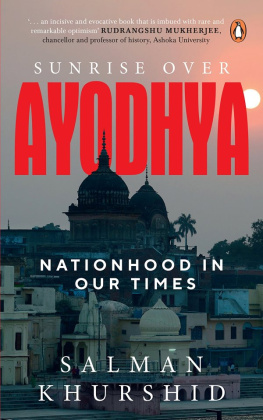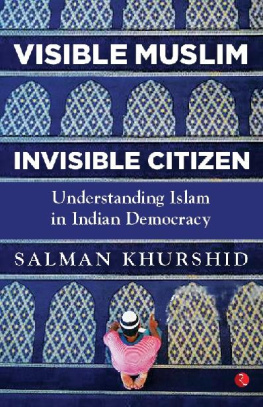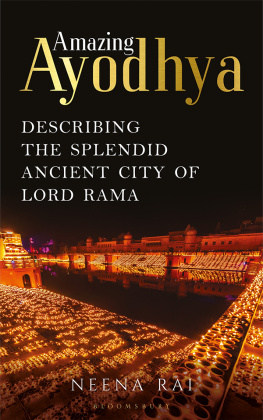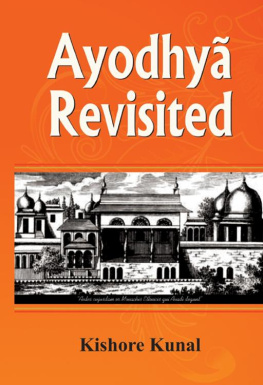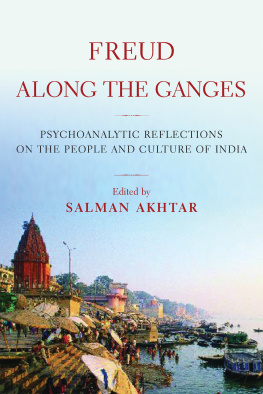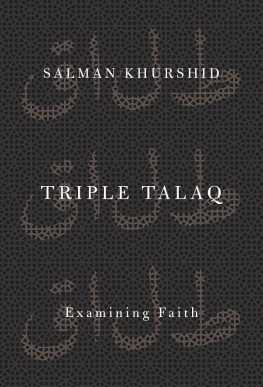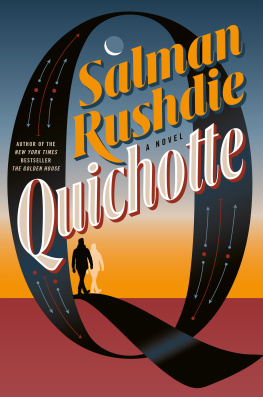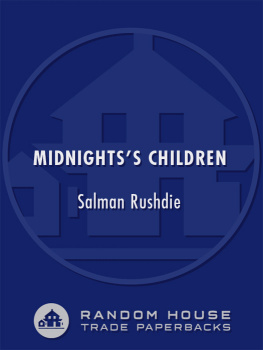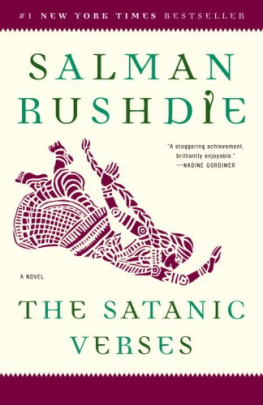Salman Khurshid - Sunrise Over Ayodhya: Nationhood in Our Times
Here you can read online Salman Khurshid - Sunrise Over Ayodhya: Nationhood in Our Times full text of the book (entire story) in english for free. Download pdf and epub, get meaning, cover and reviews about this ebook. year: 2021, publisher: Penguin Group, genre: Politics. Description of the work, (preface) as well as reviews are available. Best literature library LitArk.com created for fans of good reading and offers a wide selection of genres:
Romance novel
Science fiction
Adventure
Detective
Science
History
Home and family
Prose
Art
Politics
Computer
Non-fiction
Religion
Business
Children
Humor
Choose a favorite category and find really read worthwhile books. Enjoy immersion in the world of imagination, feel the emotions of the characters or learn something new for yourself, make an fascinating discovery.
- Book:Sunrise Over Ayodhya: Nationhood in Our Times
- Author:
- Publisher:Penguin Group
- Genre:
- Year:2021
- Rating:3 / 5
- Favourites:Add to favourites
- Your mark:
- 60
- 1
- 2
- 3
- 4
- 5
Sunrise Over Ayodhya: Nationhood in Our Times: summary, description and annotation
We offer to read an annotation, description, summary or preface (depends on what the author of the book "Sunrise Over Ayodhya: Nationhood in Our Times" wrote himself). If you haven't found the necessary information about the book — write in the comments, we will try to find it.
Sunrise Over Ayodhya: Nationhood in Our Times — read online for free the complete book (whole text) full work
Below is the text of the book, divided by pages. System saving the place of the last page read, allows you to conveniently read the book "Sunrise Over Ayodhya: Nationhood in Our Times" online for free, without having to search again every time where you left off. Put a bookmark, and you can go to the page where you finished reading at any time.
Font size:
Interval:
Bookmark:



PENGUIN BOOKS

PENGUIN BOOKS
A former Oxford don and now a practising lawyer and politician, Salman Khurshid casts his analytical and engaged eye on the AyodhyaRam Janmabhoomi controversy and the Supreme Courts verdict on it. The result is an incisive and evocative book that is imbued with rare and remarkable optimismRudrangshu Mukherjee, chancellor and professor of history, Ashoka University
While there exist many accounts of the politics which led to and followed upon the destruction of the Babri Masjid, this remarkable analysis focuses on its juridical history and consequences. More than a lament about communal violence, it looks at the new risks as well as possibilities created by legal interventions in the dispute. Written by an eminent lawyer and former law minister, the book offers a new understanding of the ways in which the judicial settlement of contending religious claims has altered Indias constitutional historyFaisal Devji, professor of Indian history, University of Oxford
Intuition, instinct, intellect have been wonderfully combined by the author to dispassionately analyse the Ayodhya saga A great contribution to the understanding of contemporary history and legal processMalvika Mala Singh, publisher, Seminar magazine
An admirably thoughtful and measured assessment of intensely divisive issues, the Ayodhya case and the Supreme Courts judgment, in a context of growing religious polarization. At a time of declining trust in the judiciary, Salman Khurshid reaffirms faith in the institution and the secular Indian Constitution of which it is guardian, in ways that are both persuasive and poignant. Anchored in extensive legal knowledge and political experience, this valuable work is vital reading for students of law, politics, history, religion and many other disciplinesRochana Bajpai, reader in politics and senior fellow, HEA, Department of Politics and International Studies, SOAS University of London
For Dr Rajeev Dhavan,
erudite, pugnacious advocate, eagle-eyed commentator,
who argued the brief for Babri Masjid
with commitment to secular values,
and whom I have had reasons to admire since
our days as law teachers in the UK
Many books have been written over the years on the protracted Ayodhya saga, situation in the country. But the continuing confusion needs to be addressed in the national interest, and therefore this book. The history of the dispute and the uneven path that culminated in the judgment must lay at rest alternative versions once the Supreme Court has spoken.
There might be a question as to why the book is titled Sunrise over Ayodhya when many features of the story suggest that Sunsetover Ayodhya might have been more appropriate. Unless one has a fatalistic view of national life, irrespective of ones opinion about the developments, it is important to look at the brighter side. Of course, the proponents of Hindutva will see it as an appropriate recognition of their moment in history. Life comes with many imperfections, including in terms of justice, but we need to adjust and accommodate for life to go on. It is quite another matter that a point comes in history when this is no longer possible. But as Thomas More of A Man for all Seasons would say, you do not seek martyrdom over every disagreement but when the point comes, no price is too high. This book is an attempt to see hope in what might be a judicious decision, even if some people think it was not entirely fair. When people begin to disagree about what is fair, there are cracks that need attention beyond all sentiments natural to human beings.
Given that public memory is short, people will very soon forget the facts of the saga of Ayodhya and merely focus attention on the outcome of the judgment. An impressive Ram Mandir will surely mark the skyline of Ayodhya and, understandably, there will be many claimants to the honour of having contributed to that. Who will recall the historical beginnings or the sequence of the dispute, how at each stage the courts dealt with them and how the decisions of successive governments gradually but inevitably led to the final outcome? Could mistakes have been avoided, and might that have made a difference? What indeed did the Supreme Court say in the several hundred pages that it devoted to the judgment? Is there a national imperative that we continue to claim adherence to high principles of secularism, social inclusion and the rule of law but submit to reality and pragmatism to preserve the delicate bonds of national unity? Instead of people having to search fragments of information from the huge expanse of relevant records, it would be useful to bring all the information together in one place for convenient access and, of course, to facilitate living knowledge of critical events in the modern history of our land. Besides, intertwined with every societys history are personal histories as well. Recording them has a palliative impact when history has been harsh or difficult to understand. It may also help friends and well-wishers understand the authors public-life motivations and attitudes better. Ultimately, what people feel intensely is best not kept confined and under cover and thus be allowed to fester.
The decades-long span of simmering disquiet and subdued anxiety finally ended with the Ayodhya verdict of the Constitutional Bench of the Supreme Court. and legally trained professionals will continue to dissect the findings for their impact as precedents for future decisions.
Despite the predictable 1045 pages (a modest size compared to the recent trend of lengthy judgments on pivotal constitutional issues), the judgment makes for easy reading, and should not be difficult to absorb and understand for legal experts as well as ordinary people. What, of course, stands out conspicuously is that the disputed plot of 2.75 acres, along with the surrounding land acquired by the Central government post the demolition, was handed over to a trust established by the government, and the Waqf Board accepted 5 acres a few kilometers from the temple site. This was not by an act of obeisance towards Ram Lalla (the deity), or, in other words, by submission to the faith of Hindus, but by an interesting balancing of principles of establishing title. The court held that the right to the inner courtyard of the mosque, claimed by Muslims, was not uninterruptedly free of opposing claims and periodic attempts by Hindus to assert their rights. On the other hand, Muslims had themselves admitted that Shri Ram Chanderji was born in Ayodhya and that the chabutra or platform in the outer courtyard had been undisputedly in the possession of Hindus for decades and puja was conducted uninterrupted. Although a close analysis of the interface of competing claims might throw up questions, the fact remains that the present decision, undoubtedly made very thoughtfully by the court, was made possible by the conduct of the Muslim side over the decades. Be that as it may, ultimately the court made a delicate balancing effort of subscribing to legal principles and healing a festering civilizational wound. Muslims, who had all along committed themselves to accepting the court verdict, now have a chance to show grace and generosity, and to reach out to claim a place as contributors to true national integration and unity.
Font size:
Interval:
Bookmark:
Similar books «Sunrise Over Ayodhya: Nationhood in Our Times»
Look at similar books to Sunrise Over Ayodhya: Nationhood in Our Times. We have selected literature similar in name and meaning in the hope of providing readers with more options to find new, interesting, not yet read works.
Discussion, reviews of the book Sunrise Over Ayodhya: Nationhood in Our Times and just readers' own opinions. Leave your comments, write what you think about the work, its meaning or the main characters. Specify what exactly you liked and what you didn't like, and why you think so.

